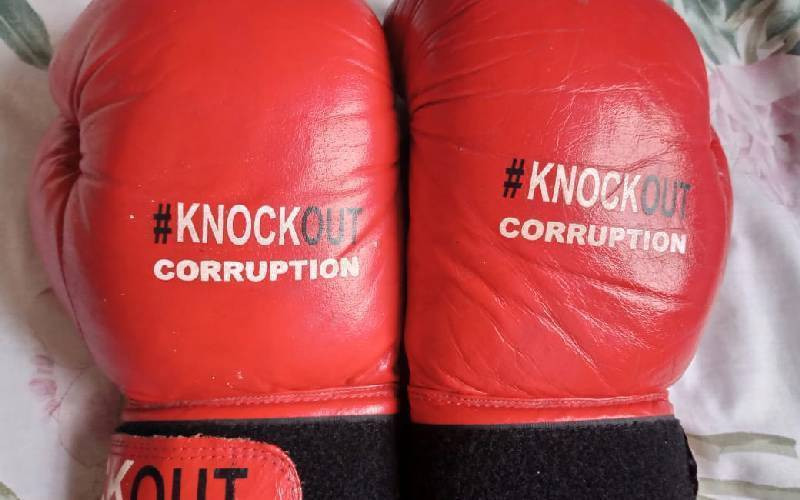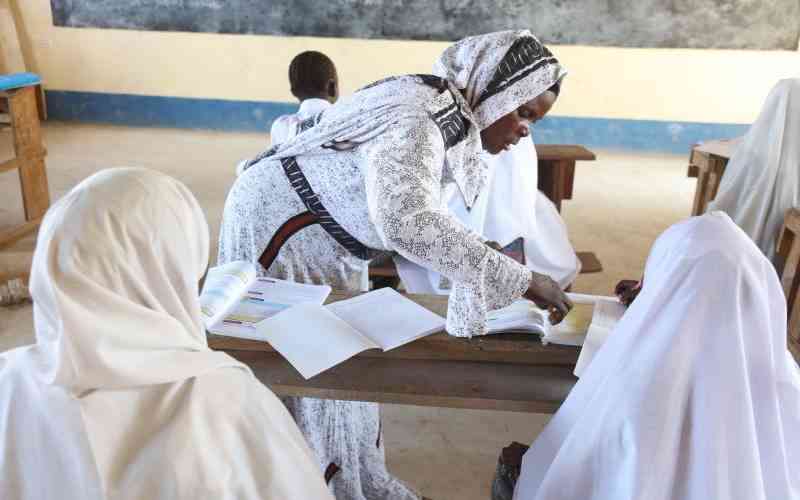The seed of Nobel Peace Prize winner Muhammad Yunus’ microfinance initiative has borne both sweet and sour fruit wherever it has been sowed.
His ingenuous efforts, according to the Norwegian Committee, have helped the poor break free of the poverty cycle. Unfortunately, his idea has in some instances also gone wrong and morphed into a blood-sucking beast that has wiped out all traces of happiness from the faces of hundreds of thousands of the poor.
Bangladesh Prime Minister Sheik Hasina went so far as to describe Mr Yunus and his microfinance institution (MFI) Grameen Bank as “sucking blood from the poor in the name of poverty alleviation.”
Aggressive selling
In India’s state of Andhra Pradesh, for example, The Guardian in 2011 reported that aggressive selling techniques, high interest rates and aggressive collection of loan repayments by MFIs left some rural folks poorer than they were found.
Yunus’ seeds of sour fruit have also found fertile ground in Kenya’s poor women.
Some MFIs have exploited these women’s ignorance and naiveté, pushing them to take up loans even when they do not have the capacity or plans to utilise the funds to generate revenue. They end up struggling to repay the loans or lose their few belongings to debt collectors.
“Women are disadvantaged because, traditionally, they have not been the owners of businesses. So, most of them tend to borrow loans in groups and in most cases for personal development as opposed to business development,” said Mr Daniel Muema Mulwa, a financial expert and head of SME business solutions at the Credit Reference Bureau (CRB).
Some MFIs will nevertheless sell loans to them, even without evaluating their capacity to repay. This is mostly because of their need for business and that credit officers are paid on commission. In instances of defaults, which are many, credit officials will use aggressive loan recovery techniques, some bordering on the criminal.
Some of these officers’ actions, especially in loan recovery, Business Beat came to find out, are not sanctioned by the MFIs and have left a trail of disgruntled customers in their wake. The institutions are, however, reluctant to take any action on their employees even in instances where there are outright abuses.
Local banks have huge portfolios of toxic debts, especially among retail customers, despite substantial capacity in risk analysis, including doing background checks on customers.
The question that abounds, then, is if such financial stalwarts as commercial banks have huge non-performing loans attributable to lacklustre financial risk analysis, what about some local MFIs whose corridors are pervaded by financial greenhorns?
Business risks
“Most MFIs do not have an understanding of the businesses that the women engage in, and as such, do not understand the risks involved,” said Mr Mulwa, whose job involves assessing and advising Saccos, banks and MFIs on such risks.
“That is why, for some women in Nairobi, their brief encounter with MFIs has been nothing but disastrous.”
Stay informed. Subscribe to our newsletter
And disastrous captures Ms Mary Mueni’s experience. In 2012, the 29-year-old resident of Makongeni in Nairobi was late making a payment on a Sh5,000 loan advanced to her by a city MFI. For that, she had everything in her home confiscated by her loan officer.
“They took everything, and yet the grace period within which I was supposed to repay the loan had not elapsed,” she said.
Ms Mueni said her loan officer, flanked by “an army of goons”, broke into her house while she was away.
Unauthorised confiscation
Even more incredulous is that when she contacted the MFI’s head office, she was told that the confiscation had not been authorised.
The same fate would have befallen Ms Janetrix Odongo had she not responded swiftly by calling the same MFI’s head office when a loan officer, accompanied by “auctioneers”, stormed into her house and tried to make away with her TV. They were instructed to return the TV as such orders had not been given.
Ms Teresa Moraa Nyakundi was spared the loss that Mueni endured, but not before she engaged her loan officer in a fierce altercation that almost degenerated into a fist fight. And all this, she said, was due to a Sh900 fine that “cryptically” accumulated after she missed her loan repayment by a day.
“After repaying my first two loans, things went bad the third time. I told them I would pay, but mwalimu [loan officer] would hear none of it. She came to my house accompanied by a man who had a huge crow bar in his hands. They wanted to break into my house and confiscate my things,” said the 54-year-old Moraa, a grocer in Nairobi.
“The following day, I paid them all their money plus the interest.”
But the loan officer, or mwalimu as the customers in this particular locale refer to loan officers, was not done with her. The following day, she came knocking, still accompanied by her right-hand man, to demand Sh900, which she said Moraa had accumulated on the day she delayed payment.
The MFI, which seems to consistently ignore its credit officers’ unorthodox loan recovery methods, did not respond to our queries. Instead, its public relations officer directed us to the company website, where we were told we would find all we wanted as far as loan terms and conditions were concerned.
Mueni and Moraa have since changed financial service providers and opened accounts with a renowned deposit-taking MFI regulated by the Central Bank of Kenya. There, Moraa said, they get longer repayment periods and the loans are larger, enabling them do more business.
However, Jacinta Mueni and Lilian Anyango’s found their experiences with another deposit-taking MFI — also regulated by the Central Bank — harrowing.
Legally allowed
Jacinta first received a Sh30,000 loan from the MFI. She got her loan while part of a group of 15. Three of these members would later default and disappear.
“That marked the beginning of my problems in the hands of the MFI officials. Our trainer [loan officer] duped us into paying for the three members, saying that after paying for them, we could apply for another round of loans,” she said.
“However, after paying for the defaulters, the trainer took a few members from our group and formed another group whose members got loans.”
Jacinta said she had been saving with the MFI, which, being a DTM is legally allowed to take deposits from customers, in addition to making her loan repayments. Her savings had accumulated to Sh8,000.
“Just as other members were about to receive loans, the trainer told me that my application had been rejected because I had applied for another loan under a different group,” says Jacinta.
It was not long before the loan shark pounced on her over the loan she had apparently taken under the other group. Jacinta spent a night on the cold floor of Makongeni Police Station, and her children, for the first time, went to bed without her.
Fatalistic view
Jacinta’s experience echoes that of Ms Anyango. The two women now hold a fatalistic view of all MFIs.
A senior official at this particular DTM insisted that, like many other MFIs, those loans were awarded to the two women’s groups as opposed to them as individuals.
The members in a group co-guarantee each other. Thus, members’ savings have to be used to repay the debts of the defaulters.
“Before, there were cases of some loan applicants giving fictitious assets or businesses so that when our officials and group members told them that they would be coming on a certain date, they would hurriedly look for those things and stock them in their houses,” said the official.
“Nowadays, we just make an impromptu visit. Should we find that someone lied about their assets or anything else, we do not give them loans.”
The official noted that the MFI takes group activities seriously.
“There are members who have been denied loans just for missing group meetings.”
The official also insisted that the women are told in advance that should one of the group members default, their savings would be used to offset the loan.
But the women, it seems, are ignorant to the concept of group lending which, the official said, is well captured in the terms and conditions that all loan applicants append their signature to before being given a loan.
Higher commissions
Mulwa of CRB said that as much as the method of giving loans to women through chamas been revolutionary, it has not been without faults.
“When you get into one of the groups, you cannot say that you are not borrowing. Thus, some members are being pushed to get a loan without a purpose,” he said.
When asked if the loan officers engaged in aggressive selling techniques, the DTM official said it might be possible.
The loan officers know they get higher commissions if the women in groups take up more loans. Conversely, when these women default, it means a drop in their incomes.
“It is thus possible that the trainers take chances and slacken the company’s stringent conditions for loan qualifications. They do this believing that when push comes to shove, they have a few tricks up their sleeves, such as duping the other members into paying for the defaulters or hiring some thugs to auction the defaulter’s property,” said the official.
Most of these credit officers, said Mulwa, have no business knowledge and are poorly remunerated.
“In most of the MFIs, what they do is that they are given a minimal salary, and then the rest of the income comes from commissions.”
According to Moraa and Mueni, it took them only two days from when they met the loan officer on the roadside to get their loans processed. No training or sensitisation was ever done. All they had to do was fill in a loan application form, state how much they wanted and hand over photocopies of their IDs and two passport-sized photos.
Noble idea
But it is not all doom and gloom. There are several poor women who have reaped Yunus’ sweet fruits of microfinance.
Ms Esther Koki is eager to finish repaying her loan so that she can apply for another one.
“It is not about the loans per se, but how you use the money,” said the mother of two.
Ms Koki admitted that like Jacinta and Anyango, she lost her savings when three members in her group defaulted.
“I felt bad, but not as bad as those people who used their money to buy food and other household items. With the loan I received, I was able to start a school which is currently doing well,” she said of her kindergarten in Nairobi’s Makongeni Estate.
There is a need for MFIs to understand the risks in the businesses their loan applicants engage in. Even more critical, to fulfil Yunus’ noble idea, they need to empower the women with business knowledge.
“While most MFIs are giving women loans to start small-scale businesses, these women lack information. They need to be educated on financial management. An understanding of basic book-keeping would go a long way,” said Mulwa.
[email protected]
 The Standard Group Plc is a
multi-media organization with investments in media platforms spanning newspaper
print operations, television, radio broadcasting, digital and online services. The
Standard Group is recognized as a leading multi-media house in Kenya with a key
influence in matters of national and international interest.
The Standard Group Plc is a
multi-media organization with investments in media platforms spanning newspaper
print operations, television, radio broadcasting, digital and online services. The
Standard Group is recognized as a leading multi-media house in Kenya with a key
influence in matters of national and international interest.
 The Standard Group Plc is a
multi-media organization with investments in media platforms spanning newspaper
print operations, television, radio broadcasting, digital and online services. The
Standard Group is recognized as a leading multi-media house in Kenya with a key
influence in matters of national and international interest.
The Standard Group Plc is a
multi-media organization with investments in media platforms spanning newspaper
print operations, television, radio broadcasting, digital and online services. The
Standard Group is recognized as a leading multi-media house in Kenya with a key
influence in matters of national and international interest.









